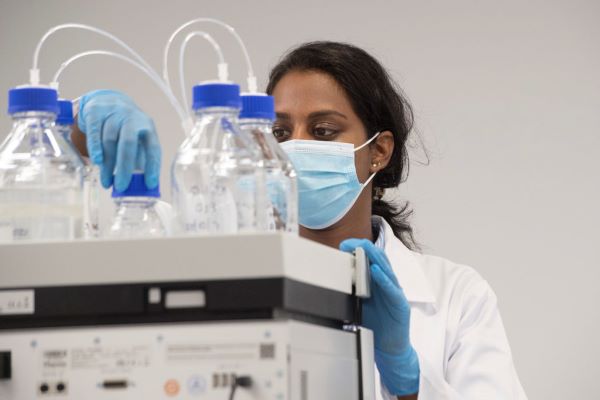For the first time, Africa is taking a major step toward vaccine self-sufficiency. Two landmark agreements, backed by a $1.2 billion investment from Gavi, The Vaccine Alliance, are setting the stage for the continent to become a producer, not just a buyer, of life-saving vaccines.
One of the agreements will establish Africa’s first end-to-end mRNA vaccine production platform, capable of manufacturing 100 million doses annually. The other strengthens cross-continental collaboration on homegrown mRNA technology. Signed in Cairo during the 2nd Vaccine & Other Health Products Manufacturing Forum, these deals mark a turning point in Africa’s health security efforts.
The first agreement unites EVA Pharma (Egypt) with European biotech firms DNA Script (France), Quantoom Biosciences (Belgium), and Unizima (Belgium) to create a “digital-to-biologics” mRNA vaccine production facility. This plant will significantly boost Africa’s ability to respond rapidly to infectious disease outbreaks and support routine immunization programs.
The second deal between Biogeneric Pharma (Egypt) and Afrigen (South Africa) aims to expand mRNA vaccine development, ensuring that cutting-edge vaccine technology is not only accessible but also tailored to diseases that disproportionately impact Africa.
“These agreements prove that Africa is no longer just a buyer of vaccines—we are becoming producers,” said Dr. Jean Kaseya, Director-General of Africa CDC, at the forum’s closing ceremony. “This is the future of health security on the continent.”
The Cairo summit underscored the urgency of local vaccine production. While Africa’s vaccine demand is valued at over $1 billion annually, the continent currently produces less than 0.1% of the global supply. The African Union has set an ambitious goal: by 2040, 60% of vaccines used in Africa should be made in Africa.
To accelerate this shift, Gavi launched the African Vaccine Manufacturing Accelerator (AVMA) in June 2024. Over the next decade, AVMA will channel investments into African manufacturers, focusing on priority vaccines like cholera and mRNA-based immunizations. Gavi’s model ensures that African manufacturers retain licensing rights, keeping intellectual property and production capacity on the continent.
“This is about building a sustainable vaccine ecosystem in Africa,” said David Kinder, Gavi’s Director of Development Finance. “We are using our market power to drive investment where it’s most needed—ensuring Africa can produce its own vaccines, for its own people.”
One of the biggest hurdles for African vaccine manufacturers is securing stable demand. Historically, African governments and global health agencies have relied on well-established suppliers from the Global North, making it difficult for local producers to compete.
To tackle this, leaders at the forum proposed a continent-wide pooled procurement system, modeled after Egypt’s Unified Procurement Authority (UPA). Egypt’s system has successfully lowered costs and stabilized supply chains, and experts believe a similar model at the African Union level could provide African-made vaccines with a guaranteed market.
“We must ensure that African-made vaccines have a stable demand,” said Egypt’s Minister of Health and Population, Dr. Khaled Abdel Ghaffar. “A pooled procurement system could be a game-changer, ensuring fair pricing and sustainability.”
Expanding vaccine manufacturing is one thing, but ensuring products meet global quality standards is another. Regulatory capacity remains a key challenge, but progress is being made. Egypt recently achieved WHO’s Maturity Level 3 in vaccine and medicine regulation, joining South Africa, which reached this milestone in 2022. The African Medicines Agency (AMA), once fully operational, is expected to harmonize regulatory approvals across Africa, making it easier for locally made vaccines to reach a wider market.
Gavi is currently seeking $9 billion in new funding for 2026-2030 to sustain its work in Africa and beyond. At the Cairo forum, African leaders pledged to support this effort, urging global donors to meet the funding target.
Momentum for Africa’s vaccine manufacturing ambitions will continue in June 2025 with the launch of Africa’s first annual vaccine and biopharmaceutical manufacturing exhibition, Africa Excon, in Egypt. The event will showcase progress in local production and attract further investment.
Despite the challenges ahead, optimism was high at the Cairo summit. “We are no longer just talking about vaccine sovereignty,” Dr. Kaseya said in his closing remarks. “We are making it happen.”
HealthPolicyWatch


